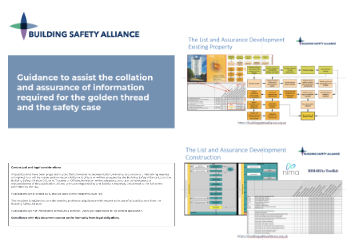Building Regulations exemptions
Contents |
[edit] Introduction
For more information see: Building regulations.
However, some building classes and types may not have to satisfy the regulations and if so, are exempt.
Compliance with the Act is crucial as those who contravene it and its associated Building Regulations may, if convicted, face a heavy fine or even imprisonment. It is therefore essential to ensure that if a building is thought to be exempt, exemption really does apply and advice sought from the appropriate authority.
In many cases, even if a building is technically exempt, the owner or developer will nonetheless comply with the regulations.
[edit] Exemptions
The following classes of building may be exempt from the regulations:
- Public bodies – e.g local authorities, county councils and other bodies acting under an enactment for the public good and not for profit. However, this is a grey area and advice should be sought if there is any uncertainty as to whether exemption applies.
- Buildings belonging to ‘statutory undertakers’ – e.g utilities.
- Buildings belonging to (or occupied by) UK Atomic Energy Authority (UKAEA). (NB: dwelling houses and offices are not exempt).
- Buildings belonging to (or occupied by) the British Airports Authority (NB: dwelling houses, hostels, offices or showrooms are not exempt).
- Buildings belonging to the Civil Aviation Authority (CAA) (NB: Houses, hotels, offices and showrooms are not exempt).
- Temporary buildings may be exempt from some parts of the building regulations, see Building regulations exemption for temporary buildings for more information.
[edit] Crown buildings
Many of the requirements of the Building Regulations apply to Crown Buildings. But there are a few deviations and therefore the advice of the Treasury should be sought when work is to be undertaken on a Crown building.
(By ‘Crown’ is meant buildings where the Crown, the Duchy of Lancaster or the Duchy of Cornwall have an interest in the building).
[edit] Buildings in Inner London
Buildings in the boroughs of Inner London are subject to the requirements of the Building Regulations but in a few circumstances some of the regulations may not apply. The advice of the local authority in question should be sought prior to submitting drawings.
[edit] Related articles on Designing Buildings Wiki
- Approved documents.
- Approved inspector.
- Building control body.
- Building notice.
- Building regulations.
- Building regulations exemption for temporary buildings.
- Building warrant (Scotland).
- Do the building regulations apply to existing buildings?
- Failure to comply with the building regulations.
- How long it takes to get building regulations approval and how long it lasts.
- Northern Ireland building regulations.
- Planning permission.
- Scottish building standards.
- Statutory approvals.
- Statutory authorities.
- The Building Act.
- The difference between planning permission building regulations approval.
- Welsh building regulations.
- What approvals are needed before construction begins.
[edit] External references
- Approved documents can be downloaded from the Planning portal.
- The Communities and Local Government Building Regulations website.
- Department for Communities and Local Government: Building Regulations, Explanatory booklet. (now archived)
- Local authority building control guidance.
- The Building Regulations in full.
- Department for Communities and Local Government.
- CLG: Determinations and appeals.
- Free online version of Approved Documents from SpecifiedBy
Featured articles and news
International Electrician Day, 10 June 2025
Celebrating the role of electrical engineers from André-Marie Amperè, today and for the future.
New guide for clients launched at Houses of Parliament
'There has never been a more important time for clients to step up and ...ask the right questions'
The impact of recycled slate tiles
Innovation across the decades.
EPC changes for existing buildings
Changes and their context as the new RdSAP methodology comes into use from 15 June.
Skills England publishes Sector skills needs assessments
Priority areas relating to the built environment highlighted and described in brief.
BSRIA HVAC Market Watch - May 2025 Edition
Heat Pump Market Outlook: Policy, Performance & Refrigerant Trends for 2025–2028.
Committing to EDI in construction with CIOB
Built Environment professional bodies deepen commitment to EDI with two new signatories: CIAT and CICES.
Government Grenfell progress report at a glance
Line by line recomendation overview, with links to more details.
An engaging and lively review of his professional life.
Sustainable heating for listed buildings
A problem that needs to be approached intelligently.
50th Golden anniversary ECA Edmundson apprentice award
Deadline for entries has been extended to Friday 27 June, so don't miss out!
CIAT at the London Festival of Architecture
Designing for Everyone: Breaking Barriers in Inclusive Architecture.
Mixed reactions to apprenticeship and skills reform 2025
A 'welcome shift' for some and a 'backwards step' for others.
Licensing construction in the UK
As the latest report and proposal to licence builders reaches Parliament.
Building Safety Alliance golden thread guidance
Extensive excel checklist of information with guidance document freely accessible.
Fair Payment Code and other payment initiatives
For fair and late payments, need to work together to add value.
Pre-planning delivery programmes and delay penalties
Proposed for housebuilders in government reform: Speeding Up Build Out.
High street health: converting a building for healthcare uses
The benefits of health centres acting as new anchor sites in the high street.
























